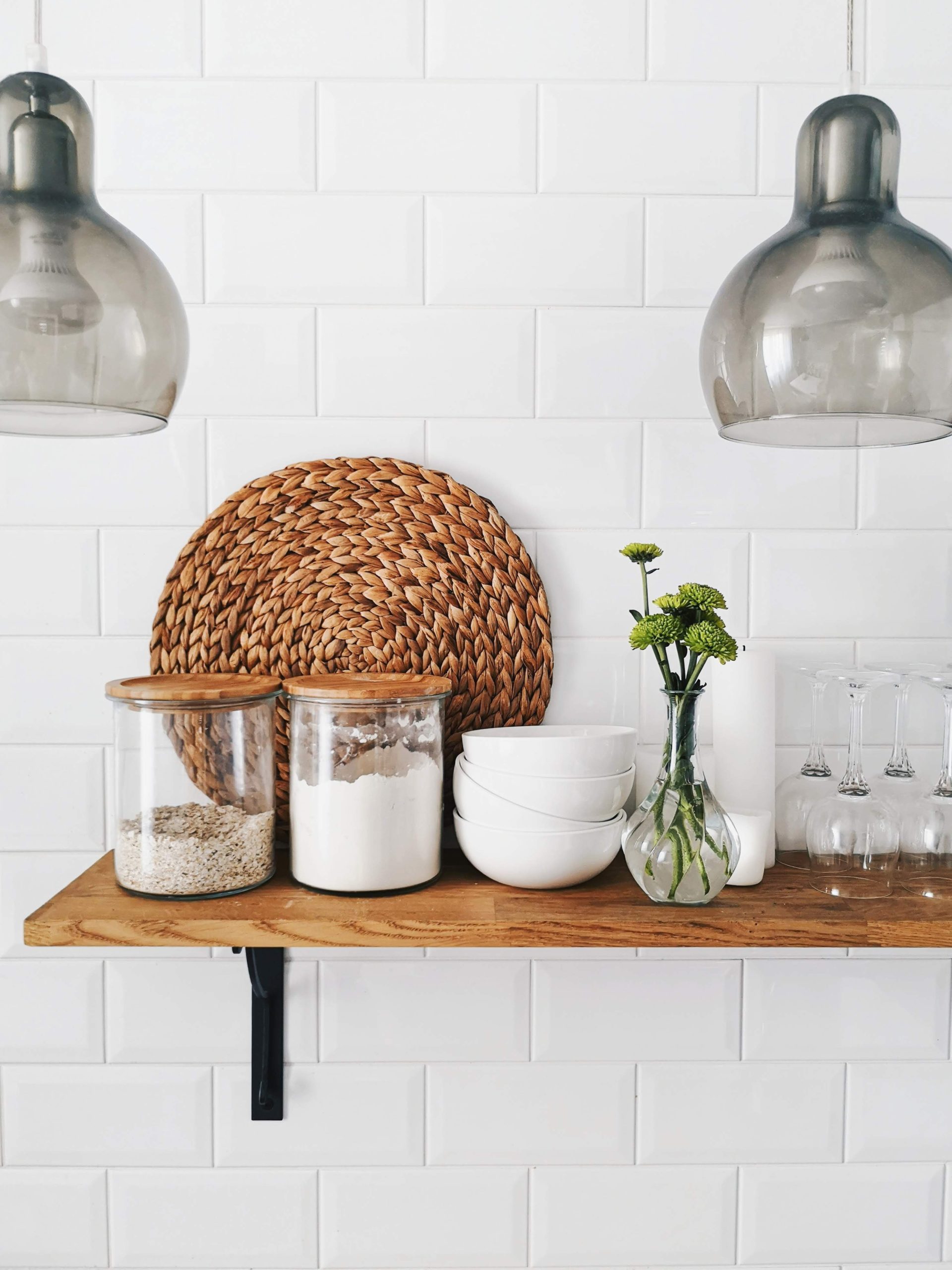Do you feel a sense of dread when you walk into a messy room that you know is way overdue for tidying up? If you’ve experienced this feeling before, you know that clutter and messiness can cause negative emotions such as stress and frustration.
But clutter isn’t just a source of stress in our physical world; clutter can also live in our minds. That’s right – grudges, limiting beliefs and to-do lists often take up a lot of precious real estate space in our minds, and occasionally, it’s a good idea to do some housekeeping.
The Impacts of Clutter
Clutter profoundly impacts all aspects of our well-being, affecting everything from the emotional to the physical aspects of our life. For example, a study on women and clutter in the home found that cluttered or messy homes increased depressed mood in women. Digging deeper, clutter can be seen causing feelings of overwhelm, shame, and guilt – all adding to the stress we’re already experiencing because of the clutter itself.
When your home is cluttered, it’s harder to find things you need, poses a higher risk of allergies, and can create a dangerous situation in the event of an emergency evacuation.
Clutter can also affect our ability to focus. When your surroundings are cluttered, such as a work desk, it can be harder to focus on the task. With too many stimuli in our surroundings, our brains go into processing overdrive which can cause fatigue and make it harder to be productive.
Similarly, when we have too much on our minds (and on our plates) and no clear way of organizing it all, it can stop us in our tracks, causing us to freeze or shut down.
Simply put, when our physical and inner worlds are cluttered, it’s difficult to perform at our best.
The Benefits of Decluttering
Decluttering your life physically, mentally, and emotionally can decrease stress, provide mental clarity, and open space to do the things that bring you joy.
Here are some other benefits of decluttering:
- It boosts self-esteem: When you feel on top of your to-do lists and goals, you naturally feel more confident in your ability to handle life.
- Improves focus: A tidy space and mind allow you to maintain better focus on whatever task you’re currently prioritizing.
- Lowers the risk of allergies: When your space is clean and tidy, dust and mold are less likely to build up.
- Improves relationships: When the home is messy, we’re less likely to have friends and family over, and it can also be a point of contention between partners living together. Furthermore, when our mind is cluttered with to-dos or negative thoughts, it leaves little room to genuinely connect with others.
- Improves lifestyle and well-being: When our space and mind are organized, we’re more likely to live healthier lives. For example, we’re more likely to cook dinner at home versus ordering take-out if our kitchen is clean, or we get a better night’s rest when the bed and room are tidy. Additionally, when our minds are at ease and clutter-free, we’re more inclined to engage in creative activities, exercise, and focus on personal growth.
Helpful Tips to Declutter Your Physical, Emotional and Mental Spaces
As we’ve discussed, clutter can exist in our physical, mental, and emotional worlds, so below are some tips to declutter each of these areas of your life so you can feel more focused and productive.
Tips to Clear Physical Clutter
- Take small steps: There’s no need to overwhelm yourself with doing the whole house all at once. Instead, it’s good to start small – start with decluttering one drawer or one closet at a time until the whole room is done, then move on to the next room and repeat.
- Assign a place to everything you own: This strategy not only helps you organize but also ensures you and your household are clear on where each item goes. Sometimes clutter builds up because we simply haven’t found a place in our home for everything we own.
- Commit to letting go of objects no longer serving you: If there are items you no longer use or have been waiting to be repaired for a long time, it’s time to consider rehoming or throwing them out.
- Use storage containers and organizing solutions: These are great for storing things such as linens, seasonal decorations, art supplies, tools, toys, etc. Label your boxes so you can easily locate what you’re looking for in the future.
- Create habits to keep clutter at bay: This can include being more mindful of purchases and asking yourself if you really need it/have room for it. It can also mean committing to a daily or weekly routine of tidying up your space to ensure clutter doesn’t build up.
Tips To Clear Emotional Clutter
- Let go of the old stories that may be holding you back: Those thoughts that are telling you you’re not organized enough, that there isn’t anything you can do about your situation, that you’re a bad (mom/partner/employee/friend) aren’t helping you in any way. Commit to letting go of negative thought patterns and challenge yourself to rewrite the narrative.
- Explore and understand the stories you tell yourself: Write down limiting beliefs that may be holding you back, ask yourself why you believe the story, and ask if the story is true or if it’s an area you need to build skills or confidence in.
- Rewrite the stories: Explore what actions you’d need to take to rewrite your story – what mindset and lifestyle changes will help you get to where you want to be? Practice taking small steps toward rewriting your story every day.
- Move on from the past: When we have trouble forgiving or moving on from past events, it bears a heavy weight that stays with us unless we consciously choose to let it go. Work on reconciling your past and living in the present moment instead.
- Journal your thoughts and feelings: We all go through complex emotions sometimes, and unless we take the time to work through them, it can impact our emotional and mental well-being. Journaling as a way of processing emotion can help untangle what we’re experiencing.
Tips to Clear Mental Clutter
- Write everything down: One of the worst ways to spin your mind out is by keeping all your to-dos, goals, appointments, and shopping lists in your head. Get in the habit of writing down lists for anything and everything you need to keep track of and watch your mind free up in no time.
- Plan your month, week & days: If you often feel there aren’t enough hours in a day to get everything done, then a good way to mitigate this is by planning out your month, week, and days ahead of time so you can ensure you aren’t committing to doing too much. We have to be realistic with our time capacity, and we can only do this if we have a clear vision of our schedule.
- Brain dump: Journaling can be great for processing emotions, but it’s also helpful to get all the random and sometimes intrusive thoughts out of your system. A brain dump can look like a massive list or a stream of thought that allows you to just get everything out. Then, once you have it all in front of you, you can begin to sort through the clutter of your thoughts, identify priorities and make a plan.
Bullet Journaling: A Tool to Help You Declutter Your Life
Bullet journals are a customizable organization tool that appeals to anyone trying to declutter and simplify their life – from scheduling and budgeting to meal planning and weekly to-do lists; bullet journaling allows you to keep track of everything that matters to you.
With bullet journaling, you create custom page spreads to help you plan and track activities for the year, month, and week. Some prefer to give their journals artistic twists, while others prefer a simple and more streamlined approach – the best thing about bullet journaling is that there are no rules or limitations for what you can track and how.
For example:
- You can create a monthly calendar page where you write important appointments, birthdays, or deadlines
- Use your weekly/daily page spreads to track daily to-dos, weekly goals, and write your grocery list for the week
- Or have pages dedicated to writing things you’re grateful for.
A bullet journal can be a planner and a personal growth tool, all in one!
Stay tuned for next week’s blog, where we’ll dive into getting started with bullet journaling.


 Copyright ©2025 Margie Lynch. All Rights Reserved
Copyright ©2025 Margie Lynch. All Rights Reserved